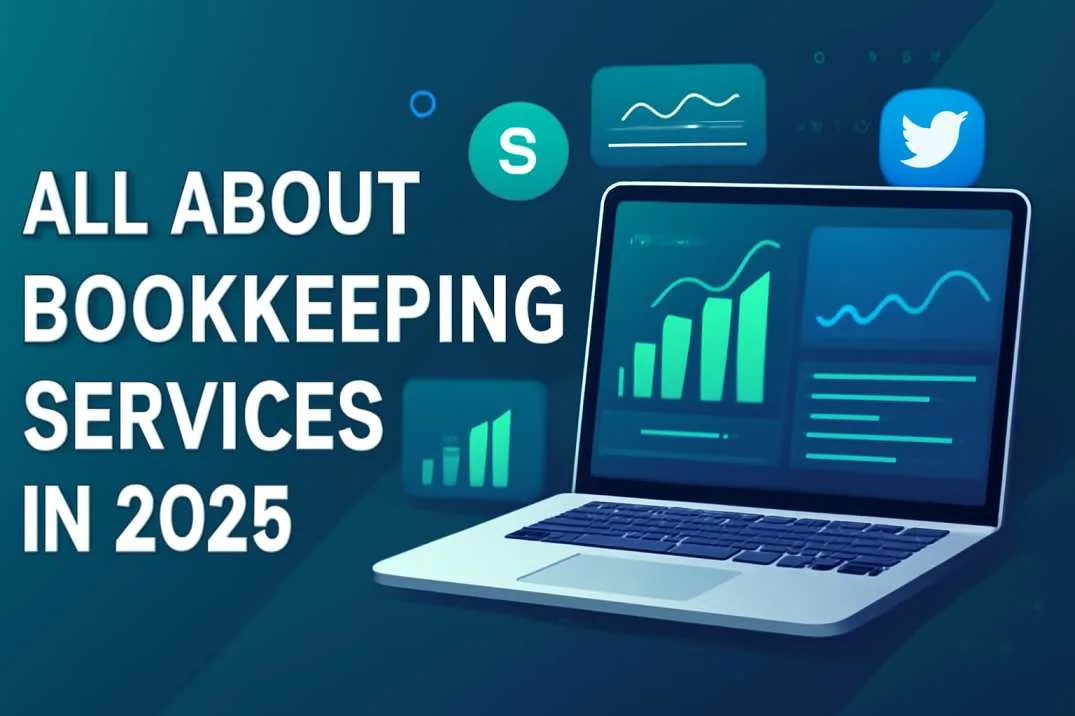Running a business means wearing many hats — but let’s be honest, bookkeeping shouldn’t be one of the hats that gives you a headache. Bookkeeping mistakes are surprisingly common, even among seasoned business owners. Left unchecked, those small slip-ups can snowball into big financial problems down the road.
The good news? With a little awareness and the right systems, most of these errors are 100% avoidable.
Below, we’ll break down the most common bookkeeping mistakes in accounting, why they happen, and how you can fix (or prevent) them.
1. Mixing Business and Personal Finances
One of the biggest (and most costly) mistakes small business owners make is mixing personal and business expenses.
That “quick lunch” on your personal card or paying your Netflix subscription from your business account may not seem like a big deal in the moment—but come tax season, it’s a nightmare.
Why it matters:
-
Makes it hard to track actual business expenses
-
Increases the risk of IRS red flags during audits
-
Makes financial reporting inaccurate
✅ Avoid it:
-
Open a dedicated business bank account and credit card
-
Make sure every transaction runs through your business accounts
-
Set up clear bookkeeping categories to separate expenses
👉 Want help setting up clean financial systems? Learn more about our bookkeeping services.
2. Misclassifying Expenses
Mislabeling expenses might not sound serious, but it can distort your financial statements and cost you tax deductions.
For example, categorizing software subscriptions as “office supplies” can make it harder to track your actual spend.
Why it matters:
-
Misclassifications affect your bottom line
-
You may overpay taxes or miss deductions
-
It can confuse investors, lenders, and even your future self
✅ Avoid it:
-
Use a well-defined chart of accounts
-
Automate categorization using reliable accounting software
-
Do monthly reviews to catch misclassified transactions early
3. Skipping Bank Reconciliations
Think of reconciliation as your business’s financial health check. If you don’t reconcile your accounts regularly, you may not notice duplicate payments, unauthorized charges, or missing entries.
Why it matters:
-
Leads to inaccurate cash flow reporting
-
Makes it harder to detect fraud or accounting errors
-
Creates headaches at tax time
✅ Avoid it:
-
Reconcile monthly (weekly if your business has high transaction volume)
-
Use accounting software that syncs with your bank
-
If time is tight, consider outsourcing this task to a bookkeeper
4. Forgetting to Track Receipts and Invoices
Receipts may seem old-school, but they’re a critical audit trail.
Losing or throwing away receipts can jeopardize your deductions and compliance during an audit.
Why it matters:
-
You need receipts to back up your tax deductions
-
Missing documentation can lead to penalties or denied claims
-
Disorganized records waste time during audits
✅ Avoid it:
-
Snap and upload receipts on the go with a mobile app
-
Store them securely in cloud storage or accounting software
-
Keep them for at least 7 years (per IRS guidelines)
5. Falling Behind on Bookkeeping Entries
We get it — bookkeeping often gets pushed to “next week.” But the longer you wait, the harder it is to remember what each transaction was for.
Why it matters:
-
Creates messy, inaccurate financial records
-
Leads to guesswork and missed deductions
-
Causes delays in reporting and tax filing
✅ Avoid it:
-
Block time each week to update your books
-
Automate transaction imports from your bank
-
Outsource to a bookkeeper if you can’t keep up consistently
6. Ignoring Financial Reports
Your profit & loss statement and cash flow reports aren’t just paperwork — they’re powerful business tools.
Ignoring them means you’re operating blind.
Why it matters:
-
Missed opportunities to control costs or improve profitability
-
Harder to catch issues early (like overspending or slow-paying customers)
-
Less clarity when applying for loans or investors
✅ Avoid it:
-
Schedule monthly financial reviews
-
Learn to read basic financial statements (or work with a CPA)
-
Use dashboards that visualize your cash flow in real time
7. DIY Bookkeeping Without Oversight
DIY bookkeeping can work when you’re starting out — but as your business grows, so do the risks. Software won’t always catch errors like misclassified expenses or missing entries.
Why it matters:
-
Inaccurate books affect decision-making
-
Errors compound over time
-
IRS audits can become more stressful and expensive
✅ Avoid it:
-
Combine software with expert review
-
Schedule quarterly reviews with a bookkeeper or CPA
-
Don’t wait until things get messy to bring in help
8. Missing Tax Deadlines
Late tax filings don’t just cause stress—they can cost you. Penalties, interest charges, and delayed refunds eat into your cash flow.
Why it matters:
-
IRS penalties can be steep
-
Cash flow disruptions can slow growth
-
Catch-up work is time-consuming and expensive
✅ Avoid it:
-
Keep your books updated year-round
-
Mark tax deadlines on your calendar (or automate reminders)
-
Work with a tax professional to stay ahead of deadlines
9. Overreliance on Accounting Software
Accounting software is a game changer—but it’s not foolproof. If your chart of accounts isn’t set up properly, your reports may be misleading.
Why it matters:
-
Overly complicated or vague accounts create confusion
-
Missed invoices and payments affect cash flow visibility
-
Software doesn’t fix human errors
✅ Avoid it:
-
Keep your chart of accounts simple and relevant
-
Regularly review AR/AP reports
-
Pair software with expert oversight
10. Recording Owner Payments Incorrectly
A common mistake among small business owners is recording payments to themselves as expenses.
This skews profit and taxable income.
Why it matters:
-
Incorrect expense reporting leads to tax issues
-
Misrepresents the true financial health of the business
✅ Avoid it:
-
Record payments as “Owner’s Draw” or equity distribution
-
Work with your bookkeeper to ensure clean reporting
11. Neglecting Sales Tax
Sales tax is one of those things business owners tend to overlook — until it comes back to bite them.
Why it matters:
-
Missing or late payments can lead to penalties
-
Incorrect filing creates compliance risks
✅ Avoid it:
-
Understand your state or regional sales tax obligations
-
Track taxable vs. non-taxable transactions accurately
-
File on time with automated reminders or CPA help
12. Waiting Too Long to Get Professional Help
This is perhaps the most overlooked mistake of all. Many business owners wait until their books are in shambles to seek help. By then, cleaning things up takes more time and money.
Why it matters:
-
Messy books hurt your ability to scale
-
Tax prep becomes stressful and costly
-
It can slow down loan approvals or investor funding
✅ Avoid it:
-
Hire a bookkeeper before your books fall behind
-
Consider fractional CFO services if your business is growing fast
-
Think of bookkeeping support as an investment, not a cost
👉 Need help keeping your books clean and audit-ready? Check out our bookkeeping services.
🧾 Key Takeaways
-
Bookkeeping mistakes are common, but preventable with the right systems.
-
Mixing personal and business finances, skipping reconciliations, and misclassifying expenses are top culprits.
-
Software alone isn’t enough—expert oversight ensures accuracy and compliance.
-
Staying organized year-round saves time, money, and stress.
📈 Final Thoughts: Keep Your Books Clean, Keep Your Business Strong
Great bookkeeping isn’t about perfection — it’s about consistency, clarity, and compliance.
By avoiding these common bookkeeping mistakes, you’ll make smarter financial decisions, stay IRS-compliant, and focus on what matters most: growing your business.
👉 Want to skip the stress altogether? Explore our bookkeeping solutions and let our team keep your books clean, accurate, and ready for whatever’s next.





